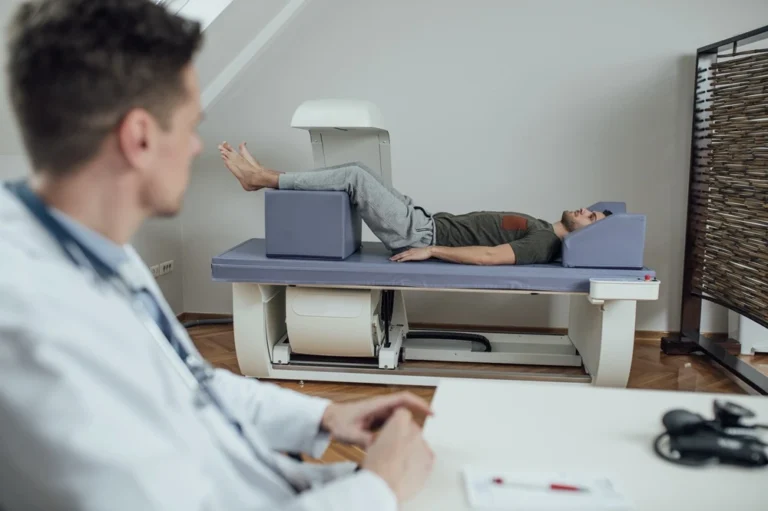5 Approaches To Managing Chronic Pain Effectively

Chronic pain affects millions of people in the United States, disrupting daily activities and reducing quality of life. Pain management offers structured approaches to reduce discomfort and restore function. Here is more information on pain management, chronic pain, and effective treatment methods available to help you find relief:
What Does Pain Management Entail?
Pain management encompasses a multidisciplinary approach to treating persistent discomfort through a combination of medical interventions and therapeutic techniques. Healthcare providers assess the underlying cause of pain, evaluate its severity, and develop personalized treatment plans. Treatment plans typically involve both diagnostic procedures and therapeutic interventions.
Diagnostic methods help identify the source of pain through imaging studies and physical examinations. Therapeutic approaches range from minimally invasive procedures to comprehensive rehabilitation programs. This approach focuses on improving function, reducing pain intensity, and enhancing overall well-being through evidence-based treatments.
What Is Chronic Pain?
Chronic pain is defined as persistent discomfort lasting longer than three months, extending beyond the normal healing time of tissues. Unlike acute pain, which serves as a protective mechanism, chronic pain often persists without a clear biological purpose. This condition can result from various underlying issues, including arthritis, fibromyalgia, nerve damage, or previous injuries.
Chronic pain can manifest as constant aching, burning sensations, shooting pains, or stiffness. These symptoms often fluctuate in intensity and may worsen with specific activities or changes in weather. Medical professionals classify chronic pain based on its origin, including neuropathic pain from nerve damage and mixed pain involving multiple mechanisms. Understanding the specific type of chronic pain helps guide treatment.
How Can You Manage Pain Effectively?
Effective pain management requires a comprehensive approach tailored to each individual’s unique needs and pain characteristics. Modern treatment methods offer multiple options for addressing chronic pain. These range from conservative therapies to advanced interventional procedures.
Physical Therapy
Physical therapy is designed to improve strength, flexibility, and mobility while reducing pain. Treatment may include manual therapy techniques, therapeutic exercises, and modalities such as heat and cold stimulation. Physical therapy helps restore function and teaches patients self-management strategies for long-term pain control.
Steroid Injections
Steroid injections deliver anti-inflammatory medication directly to affected areas, providing targeted pain relief. These injections can be administered into joints, around nerves, or into the epidural space surrounding the spinal cord. Steroid injections are particularly effective for treating inflammatory conditions that affect the spine, joints, and soft tissues.
Radiofrequency Ablation
Radiofrequency ablation uses controlled heat energy to interrupt pain signals transmitted by specific nerves. During the procedure, a specialized needle delivers radiofrequency energy to targeted nerve tissue, creating a controlled lesion that blocks pain transmission. This minimally invasive treatment is commonly used for chronic back pain and joint pain.
PRP (Platelet-Rich Plasma)
PRP therapy involves extracting a patient’s blood, concentrating the platelets, and injecting the solution into damaged tissues. The concentrated platelets contain growth factors that promote healing and tissue regeneration. This regenerative treatment is used for various conditions, including tendon injuries, joint pain, and soft tissue damage.
Nerve Blocks
Nerve blocks involve injecting anesthetic medication around specific nerves to interrupt the transmission of pain signals. These procedures can provide both diagnostic information and therapeutic relief. Nerve blocks may offer temporary or prolonged pain relief depending on the specific technique and medications used.
Find Relief From Chronic Pain
Chronic pain management requires a personalized approach that may include physical therapy, steroid injections, radiofrequency ablation, PRP therapy, and nerve blocks. Each treatment option has specific indications and benefits that can be tailored to individual patient needs. Contact a pain management specialist today to begin your journey toward effective pain relief.
- What to Expect When Visiting a Foot and Ankle Specialist
- Causes of PTSD
- The Link Between Plantar Fasciitis and Weight Gain: What You Need to Know
- How Pet Ownership Can Positively Impact Life with Fibromyalgia
- The Importance of Stretching and Flexibility in Sports Medicine
Dr. Emma Green is a health and wellness expert with over 10 years of experience in nutrition and fitness. Passionate about helping others live their healthiest lives, Dr. Green shares practical advice on wellness, nutrition, and sustainable living through LivingSpristine.






